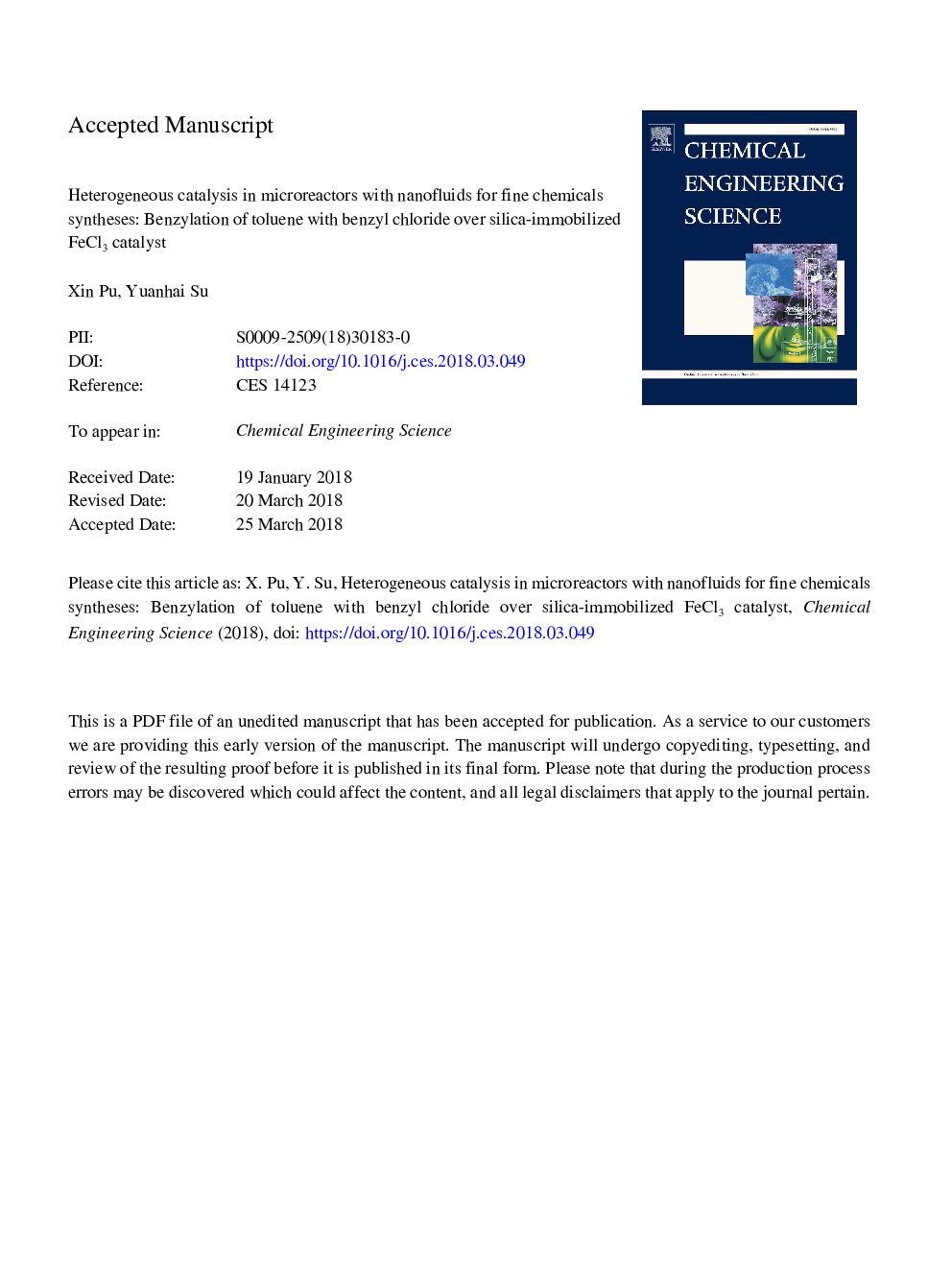| Article ID | Journal | Published Year | Pages | File Type |
|---|---|---|---|---|
| 6588503 | Chemical Engineering Science | 2018 | 38 Pages |
Abstract
A novel strategy for a heterogeneous benzylation reaction conducted in a capillary microreactor was proposed. Silica-immobilized FeCl3 nanocatalysts were dispersed in benzyl chloride to form a nanofluid, and then were applied for the benzylation of toluene with benzyl chloride to produce monobenzyl toluene and dibenzyl toluene. The effects of various factors, such as reaction temperature, catalyst composition and residence time on the reaction performance were systematically evaluated. The benzyl chloride conversion could reach 99.2% with the 10%FeCl3-SiO2 catalyst under optimal conditions. Both internal effectiveness factor and external effectiveness factor were estimated to explore the influence of internal diffusion and external diffusion on the reaction performance and to reveal the rate-controlling step during the continuous-flow synthesis. Furthermore, the carbenium ions mechanism was applied to elaborate this heterogeneous benzylation reaction. The nanocatalysts could be regenerated and reused for three times with a high catalytic activity (conversion of benzyl chloride >70%), showing great application potential of this nanofluid catalysis protocol on chemical transformations for fine chemicals syntheses.
Related Topics
Physical Sciences and Engineering
Chemical Engineering
Chemical Engineering (General)
Authors
Xin Pu, Yuanhai Su,
